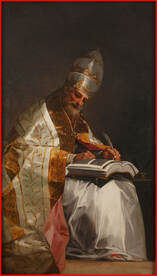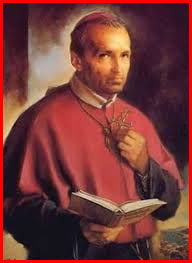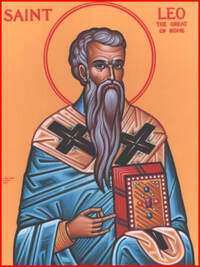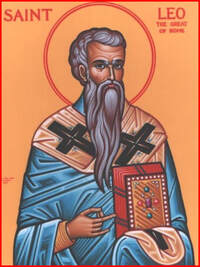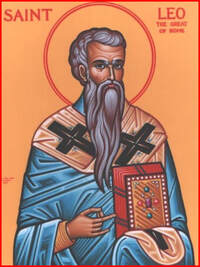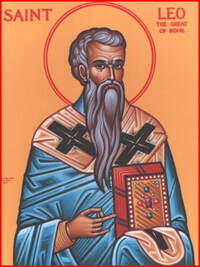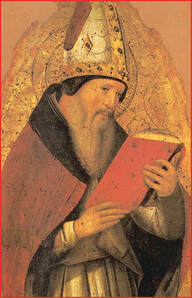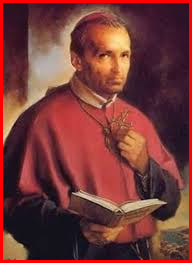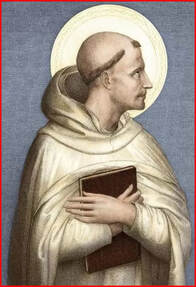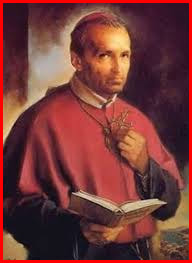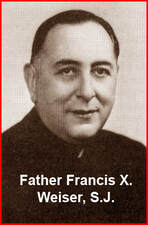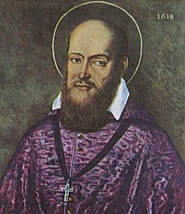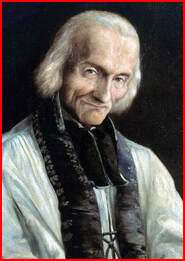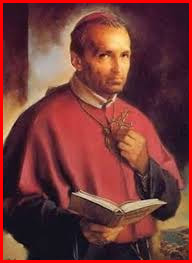| Devotion to Our Lady |
|
- Homepage
-
Daily Thoughts
- 2023 October Daily Thoughts
- Daily Thoughts Lent 2020
- Daily Thoughts for Advent 2019
- Daily Thoughts for October 2019
- Daily Thoughts for September 2019
- Daily Thoughts for August 2019
- Daily Thoughts for July
- Daily Thoughts for June
- Daily Thoughts for Easter 2019
- Daily Thoughts for Lent 2019
- Daily Thoughts for Christmas
- Daily Thoughts Easter 2022
- Sacred Heart
- Holy Ghost
-
Spiritual Life
- Holy Mass Explained
- First Friday Devotions
- First Saturday Devotions
- The Mercy of God
- Vocations
- The Path Everyone Must Walk >
- Gift of Failure
- Halloween or Hell-O-Ween?
- Ignatian Spiritual Exercises >
- Meditation is Soul-Saving
- Spiritual Communion
- Miraculous Medal
- Enrollment in Miraculous Medal
- St. Benedict Medal
- Holy Water
- Advice on Prayer
- Your Daily Mary
-
Prayers
- September Devotions
- Seven Sorrows of Our Lady
-
Novenas
>
- NV-Help of Christians
- NV-Nativity of Our Lady
- NV-Seven Sorrows
- NV- Sorrowful Heart
- NV-Pope St Pius X
- NV-La Salette
- NV-St Michael Archangel
- NV-Immaculate Heart
- NV-Assumption
- NV-Novena for Fathers
- NV-Novena for Your Mother
- NV-St Raphael Archangel
- NV-Souls in Purgatory
- NV-All Saints Day
- NV-Christ the King
- NV-Divine Motherhood
- NV-Guardian Angels
- NV-Rosary
- NV-Mirac Med
- NV- Imm Conc
- NV - Guadalupe
- NV - Nativity of Jesus
- NV-Epiphany
- NV-OL Good Success
- NV-Lourdes
- NV-St Patrick
- NV-St Joseph
- NV-Annunciation
- NV-St Louis de Montfort
- NV-OL Good Counsel
- NV-Last Supper
- NV-Passion
- NV-Pentecost
- NV-Ascension
- NV-Sacred Heart
- NV-Sacred Heart & Perpetual Help
- NV-Corpus Christi
- NV-OL of Perpetual Help
- NV-Queenship BVM
- NV-OL of Mount Carmel
- NV-St Mary Magdalen
- NV- Im Hrt
- August Devotions to IHM
- Immaculate Heart of Mary
- Litany of Dependence
- Prayers to St Mary Magdalen
- Prayers in Times of Sickness Disease & Danger
- Holy Souls in Purgatory
- Meditations on the Litany of Our Lady
- Special Feast Days
- Prayers to Mary (Mon-Sun)
- Litanies to Our Lady >
- Various & Special Needs
- Our Lady of the Rosary
- Our Lady of Mt. Carmel
- Our Lady of Perpetual Help
- Our Lady of Guadalupe
- Other titles of Our Lady
-
Rosary
- Downloads
- Consecration
- Easter Season
-
Holy Week
- Last Seven Words of Jesus >
- Characters of Passion >
- The Last Days of Christ
- Before Palm Sunday
- Palm Sunday
- Monday in Holy Week
- Tuesday in Holy Week
- Wednesday in Holy Week
- Holy Thursday (Last Supper)
- Holy Thursday (Agony & Arrest)
- Night Vigil with Christ
- Good Friday (Pilate & Herod)
- Good Friday (Way of Cross & Crucifixion)
- Saturday in Holy Week
-
Lent
- Ideas for Lent
- Daily Lenten Planner
- Daily Lenten Liturgy
- From Cold to Hot
- Lent with Aquinas
- Lent with Dom Gueranger
- Virtues for Lent
- History of Penance
- How Expensive is Sin?
- Confession of Sins
- Letter to Friends of the Cross
- Sermons for Lent
- Stations of the Cross >
- Lenten Prayers
- 7 Penitential Psalms
- Lenten Psalms SUN
- Lenten Psalms MON
- Lenten Psalms TUE
- Lenten Psalms WED
- Lenten Psalms THU
- Lenten Psalms FRI
- Lenten Psalms SAT
- Lenten Laughs
- Septuagesima
-
Christmas
- Epiphany Explained
- Suggestions for Christmas
- Food For Thought
- Christmas with Aquinas
- Christmas with Dom Gueranger
- Christmas Prayers
- Candles & Candlemas
- Christmas Sermons
- Christmas Prayers SUN
- Christmas Prayers MON
- Christmas Prayers TUE
- Christmas Prayers WED
- Christmas Prayers THU
- Christmas Prayers FRI
- Christmas Prayers SAT
- Twelve Days of Christmas >
-
Advent Journey
- Purgatory
- Christ the King
- Legion of Mary
- Scapular
-
Saints
-
Martyrs for the Faith
>
- Your Daily Martyr >
- All 365 Days of Martyrs
- Cristeros
- St Valentine & Valentine's Day
- Martyrs--Thomas Becket
- Martyrs--John the Apostle
- Holy Machabees
- Age of Martyrdom
- Carmelites of Compiegne
- Martyrs--Peter & Paul
- Martyrs--John the Baptist
- Martyrs--Andrew
- Martyrs--James the Great
- Martyrs--North American
- Martyrs--Seven Holy Sleepers
- Martyrs--Afra
- School of Martyrdom
- Martyrs--Christina
- Desert Saints >
- Saints for Sinners >
- Saints of Mary >
- History of All Saints Day
-
Martyrs for the Faith
>
- Precious Blood
- Synod 2023
-
Catechism
- Catechism Lesson 1
- Catechism Lesson 2
- Catechism Lesson 3
- Catechism Lesson 4
- Catechism Lesson 5
- Catechism Lesson 6
- Catechism Lesson 7
- Catechism Lesson 8
- Catechism Lesson 9
- Catechism Lesson 10
- Catechism Lesson 11
- Catechism Lesson 12
- Catechism Lesson 13
- Catechism Lesson 14
- Catechism Lesson 15
- Catechism Lesson 16
- Catechism Lesson 17
- Catechism Lesson 18
- Catechism Lesson 19
- Catechism Lesson 20
- Catechism Lesson 21
- Catechism Lesson 22
- Bible Study
-
Calendar
- Miracles
- Apparitions
- Shrines
- Prophecies
- Angels Homepage
- Hell
-
Church Crisis
- Conspiracy Theories
- Amazon Synod 2019 >
- Liberalism & Modernism
- Modernism--Encyclical Pascendi
- Modernism & Children
- Modernism--Documents
- The Francis Pages
- Church Enemies on Francis
- Francis Quotes
- Amoris Laetitia Critique
- Danger of Ignorance (Pius X)
- Restore all In Christ (Pius X)
- Catholic Action (Pius X)
- Another TITANIC Disaster?
- The "Errors of Russia"
- CRISIS PRAYERS
- Election Novena 2024
- The Anger Room
- War Zone
- Life of Mary
- Spiritual Gym
- Stupidity
- Coronavirus and Catholicism
- History & Facts
- Books
- Catholic Family
- Children
- Daily Quiz
-
Novena Church & Pope
- Day 01 Church-Pope Novena
- Day 02 Church-Pope Novena
- Day 03 Church-Pope Novena
- Day 04 Church-Pope Novena
- Day 05 Church-Pope Novena
- Day 06 Church-Pope Novena
- Day 07 Church-Pope Novena
- Day 08 Church-Pope Novena
- Day 09 Church-Pope Novena
- Day 10 Church-Pope Novena
- Day 11 Church-Pope Novena
- Day 12 Church-Pope Novena
- Day 13 Church-Pope Novena
- Day 14 Church-Pope Novena
- Day 15 Church-Pope Novena
- Day 16 Church-Pope Novena
- Day 17 Church-Pope Novena
- Day 18 Church-Pope Novena
- Day 19 Church-Pope Novena
- Day 20 Church-Pope Novena
- Day 21 Church-Pope Novena
- Day 22 Church-Pope Novena
- Day 23 Church-Pope Novena
- Day 24 Church-Pope Novena
- Day 25 Church-Pope Novena
- Day 26 Church-Pope Novena
- Day 27 Church-Pope Novena
- Day 28 Church-Pope Novena
- Day 29 Church-Pope Novena
- Day 30 Church-Pope Novena
- Day 31 Church-Pope Novena
- Day 32 Church-Pope Novena
- Day 33 Church-Pope Novena
- Day 34 Church-Pope Novena
- Day 35 Church-Pope Novena
- Day 36 Church-Pope Novena
- Day 37 Church-Pope Novena
- Day 38 Church-Pope Novena
- Day 39 Church-Pope Novena
- Day 40 Church-Pope Novena
- Day 41 Church-Pope Novena
- Day 42 Church-Pope Novena
- Day 43 Church-Pope Novena
- Day 44 Church-Pope Novena
- Day 45 Church-Pope Novena
- Day 46 Church-Pope Novena
- Day 47 Church-Pope Novena
- Day 48 Church-Pope Novena
- Day 49 Church-Pope Novena
- Day 50 Church-Pope Novena
- Day 51 Church-Pope Novena
- Day 52 Church-Pope Novena
- Day 53 Church-Pope Novena
- Day 54 Church-Pope Novena
- Penance Novena
- Daily WeAtheR Forecast
CLICK ON ANY LINK BELOW
| Advent Journey | Advent with Aquinas | Advent with Dom Gueranger | Advent Sermons |
| Advent Prayers (not psalms) | From Cold to Hot for Christmas |
| Journey to Bethlehem | Pre-Advent Countdown |
IF YOU REALLY WANT TO "GET INTO" ADVENT, THEN PRAY THE PSALMS
TRANSFORM YOUR HOME INTO THE "DOMESTIC CHURCH" IT IS MEANT TO BE!
LINKS TO PSALMS FOR EVERY DAY OF THE WEEK DURING ADVENT
| Sundays | Mondays | Tuesdays | Wednesdays | Thursdays | Fridays | Saturdays |
| Advent Journey | Advent with Aquinas | Advent with Dom Gueranger | Advent Sermons |
| Advent Prayers (not psalms) | From Cold to Hot for Christmas |
| Journey to Bethlehem | Pre-Advent Countdown |
IF YOU REALLY WANT TO "GET INTO" ADVENT, THEN PRAY THE PSALMS
TRANSFORM YOUR HOME INTO THE "DOMESTIC CHURCH" IT IS MEANT TO BE!
LINKS TO PSALMS FOR EVERY DAY OF THE WEEK DURING ADVENT
| Sundays | Mondays | Tuesdays | Wednesdays | Thursdays | Fridays | Saturdays |
Throughout the Season of Advent, we will post various sermons by the Saints, the Blessed, the Venerable or just popes, bishops and priests. These will cover some of the chief aspects of Advent, its purpose, its customs, its spirituality and its penances.May they bring you much inspiration and grace, while helping you spend the season in a truly profitable and fruitful manner.
CONTENTS
|
1. Pope St. Gregory the Great HOMILY FOR THE 1st SUNDAY OF ADVENT
2. St. Alphonsus Liguori SERMON FOR THE 1st SUNDAY OF ADVENT 3. Pope St. Leo the Great HOMILY ON THE FAST OF ADVENT 4. Pope St. Leo the Great HOMILY ON SELF-RESTRAINT DURING ADVENT 5. Pope St. Leo the Great HOMILY ON FASTING & ALMSGIVING IN ADVENT 6. Pope St. Leo the Great MORE THOUGHTS ON FASTING & ALMSGIVING 7. Dom Prosper Gueranger THE IMMACULATE CONCEPTION (Part 1) 8. Dom Prosper Gueranger THE IMMACULATE CONCEPTION (Part 2) 9. St. Augustine of Hippo HOMILY ON ST. JOHN THE BAPTIST |
10. St. Alphonsus Liguori SERMON FOR THE 2nd SUNDAY OF ADVENT
11. St. Bernard of Clairvaux SERMON ON THE COMING OF CHRIST 12. St. Alphonsus Liguori SERMON FOR THE 3rd SUNDAY OF ADVENT 13. Father Francis X. Weiser, S.J. SERMON ON THE EMBER DAYS 14. St. Francis de Sales SERMON ON ST. JOHN THE BAPTIST 15. St. John Vianney SERMON FOR THE 4th SUNDAY OF ADVENT 16. St. Aphonsus Liguori SERMON FOR THE 4th SUNDAY OF ADVENT 17. St. Vincent Ferrer SERMON FOR CHRISTMAS EVE |
SERMON 1
Pope St. Gregory the Great
ON THE GOSPEL FOR THE FIRST SUNDAY OF ADVENT
(Luke 21:35-33).
Pope St. Gregory the Great
ON THE GOSPEL FOR THE FIRST SUNDAY OF ADVENT
(Luke 21:35-33).
SERMON 2
St. Alphonsus Liguori
SERMON FOR THE FIRST SUNDAY OF ADVENT
St. Alphonsus Liguori
SERMON FOR THE FIRST SUNDAY OF ADVENT
SERMON 3
Pope St. Leo the Great (390-461)
SERMON XII: ON THE FAST OF ADVENT
Pope St. Leo the Great (390-461)
SERMON XII: ON THE FAST OF ADVENT
SERMON 4
Pope St. Leo the Great (390-461)
SERMON XIX: ON SELF-RESTRAINT DURING ADVENT
Pope St. Leo the Great (390-461)
SERMON XIX: ON SELF-RESTRAINT DURING ADVENT
SERMON 5
Pope St. Leo the Great (390-461)
SERMON XVI: ON FASTING AND ALMSGIVING
Pope St. Leo the Great (390-461)
SERMON XVI: ON FASTING AND ALMSGIVING
SERMON 6
Pope St. Leo the Great (390-461)
SERMON XVII: FURTHER THOUGHTS ON FASTING AND ALMSGIVING
Pope St. Leo the Great (390-461)
SERMON XVII: FURTHER THOUGHTS ON FASTING AND ALMSGIVING
SERMON 7
Dom Prosper Gueranger (1805-1875)
THE DOGMA & HISTORY OF THE FEAST OF THE IMMACULATE CONCEPTION
Dom Prosper Gueranger (1805-1875)
THE DOGMA & HISTORY OF THE FEAST OF THE IMMACULATE CONCEPTION
SERMON 8
Dom Prosper Gueranger (1805-1875)
THE IMMACULATE CONCEPTION PREPARES THE WAY FOR THE MESSIAS
Dom Prosper Gueranger (1805-1875)
THE IMMACULATE CONCEPTION PREPARES THE WAY FOR THE MESSIAS
SERMON 9
St. Augustine of Hippo (354-430)
ON ST. JOHN THE BAPTIST
St. Augustine of Hippo (354-430)
ON ST. JOHN THE BAPTIST
SERMON 10
St. Alphonsus Liguori
SERMON FOR THE SECOND SUNDAY OF ADVENT
St. Alphonsus Liguori
SERMON FOR THE SECOND SUNDAY OF ADVENT
SERMON 11
St. Bernard of Clairvaux
SERMON ON THE COMING OF CHRIST
St. Bernard of Clairvaux
SERMON ON THE COMING OF CHRIST
SERMON 12
St. Alphonsus Liguori
SERMON FOR THE THIRD SUNDAY OF ADVENT
St. Alphonsus Liguori
SERMON FOR THE THIRD SUNDAY OF ADVENT
SERMON 13
Fr. Francis Xavier Weiser
SERMON ON THE EMBER DAYS
Fr. Francis Xavier Weiser
SERMON ON THE EMBER DAYS
SERMON 14
St. Francis de Sales
JOINING ST. JOHN THE BAPTIST IN THE DESERT
St. Francis de Sales
JOINING ST. JOHN THE BAPTIST IN THE DESERT
SERMON 15
St. John Vianney
SERMON FOR THE 4TH SUNDAY OF ADVENT
St. John Vianney
SERMON FOR THE 4TH SUNDAY OF ADVENT
SERMON 16
St. Alphonsus Liguori
THE LOVE OF JESUS CHRIST FOR US AND OUR OBLIGATIONS TO LOVE HIM
St. Alphonsus Liguori
THE LOVE OF JESUS CHRIST FOR US AND OUR OBLIGATIONS TO LOVE HIM
SERMON 17
St. Vincent Ferrer
SERMON FOR CHRISTMAS EVE
St. Vincent Ferrer
SERMON FOR CHRISTMAS EVE
Web Hosting by Just Host

